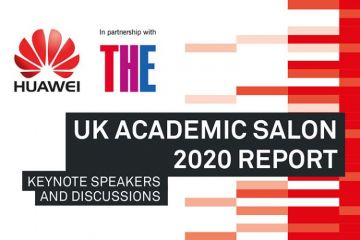The UK may become a bit-part player in the next stage of Europe’s space mission unless it can join Horizon Europe, according to a University of Cambridge scientist forced to give up his leading role in a £2.4 million project.
Nicholas Walton, a research fellow at Cambridge’s Institute of Astronomy, was due to take charge of a prestigious Marie Skłodowska-Curie doctoral network after successfully applying to the European Research Council (ERC), but he reluctantly handed control of the project to a colleague in Amsterdam in May following the deadlock over the UK’s membership of the European Union’s flagship research framework.
It follows a directive from Brussels stating that UK-based researchers approved for ERC grants would lose their funding by the end of May unless a deal on Horizon Europe – currently stalled by trade talks related to the Northern Ireland protocol – is agreed.
While losing leadership of the Horizon Europe grant is a blow, the bigger impact will be the UK’s loss of influence in discussions defining the European Space Agency’s (ESA) potential successor to Gaia, said Dr Walton.
“Gaia is currently mapping nearly 2 billion stars in the Milky Way. Based on its success, we are already building the scientific case for a follow-on mission, even though that may not launch until the mid-2040s. If you are not there with a leading role from the start, it is much harder to claim that later on,” he explained.
While the UK remains part of the ESA, many of the ideas leading to new missions are developed within research networks, such as these doctoral networks, funded by the EU, he said. “In the case of a Gaia follow-on mission, we’re talking about a future project worth more than €1 billion [£850 million], of which most will go to industrial contracts, so decisions now may have a big impact on where high-technology jobs go in the future,” he said, pointing out that Airbus Defence and Space in Stevenage played a major role in construction of the current Gaia spacecraft.
“The reason why you win big contracts further down the line is being part of initiatives from the start.”
While he welcomed the UK’s commitment to replace lost Horizon Europe funding and to establish substitute schemes, these new programmes might take years to command the same prestige as the current European research initiatives, Dr Walton added.
“In science, the UK is a big fish in a big pond – everyone, including the Americans, recognises the importance of flagship EU research programmes such as Horizon Europe and its schemes such as MSCA doctoral networks or the ERC grants. If we do something by ourselves, we become a big fish in a smaller pond – people will notice what we do less,” he said.
The lack of detail about replacement schemes was concerning but inevitable given the complexity of creating scores of new grants schemes like those currently run by the EU, added Dr Walton.
“The latest guidance contains a four-page list of Horizon calls that currently will be covered by the UK guarantee – that’s about 150 different calls, all with their own rules,” he explained. “The EU has a very efficient process which the UK is trying to replace from a standing start, so I fear there will be a lot of duplication of effort. It’s very wasteful in terms of research time.”
He added: “It would be nice if there was more clarity about what is happening. Sadly, the true impact of what is going might only be felt in five or 10 years’ time.”
Register to continue
Why register?
- Registration is free and only takes a moment
- Once registered, you can read 3 articles a month
- Sign up for our newsletter
Subscribe
Or subscribe for unlimited access to:
- Unlimited access to news, views, insights & reviews
- Digital editions
- Digital access to THE’s university and college rankings analysis
Already registered or a current subscriber?










